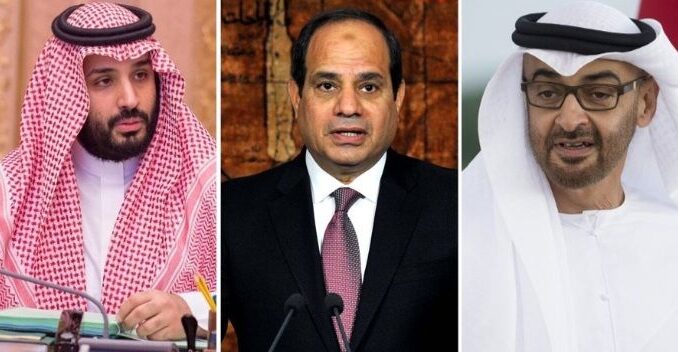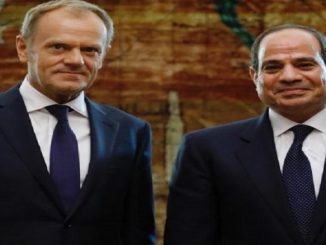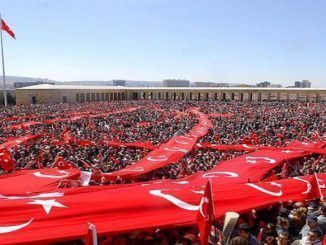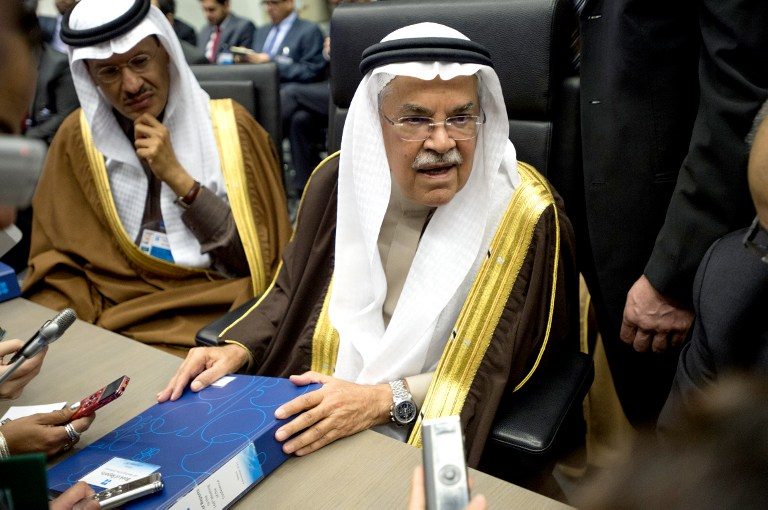
Egypt has been asked to devalue its currency, appoint new officials to run its finances, states the Wall Street Journal.
Saudi Arabia and other Arab Gulf countries have warned Egypt that any financial bailout would depend on Cairo devaluing its currency and appointing new officials to run its economy, according to Egyptian and Gulf officials, raising the bar for its embattled neighbor after providing years of easy assistance, according to a report by Summer Said and Chao Deng published by WSJ, continuing as follows:
The economy of the Arab world’s most populous country is in dire straits after the Covid-19 pandemic hit its tourism sector and the war in Ukraine pushed up global food and commodity prices. Inflation has soared to over 40% and Egypt’s currency is one of the worst performers globally this year, pushing millions more into poverty.
Since Egypt’s Abdel Fattah Al Sisi seized power in 2013, Gulf countries have provided tens of billions of dollars to Egypt in the form of aid and direct deposits to prop up an ally that is also a key security partner in the region. Now he is turning again to Egypt’s biggest benefactors, visiting Saudi Arabia in a surprise trip last Sunday to drum up more financial support for Cairo, according to people familiar with the matter.
But while Mr. Sisi tweeted about meeting Saudi Arabia’s de facto ruler, Crown Prince Mohammed bin Salman, his visit didn’t result in any immediate Saudi funding promises, the people said.
Egypt’s wealthy neighbors all want better returns for their money now as they focus on reshaping their own energy-dependent economies, Egyptian and Gulf officials said. At the top of their list of demands is a further devaluation of the Egyptian pound, which would potentially make Gulf investments in Egypt more lucrative, the officials said. The Gulf states have asked for Egypt’s military to cut back its involvement in the economy in favor of a bigger role for the private sector, a move that would potentially allow Gulf companies to take stakes in Egypt’s growth sectors.
The Gulf states also want a more effective leadership to run its finances, the officials said, amid years of concerns over mismanagement and corruption.
Egypt, so far, has done little to address the Gulf countries’ demands. Analysts expect Cairo could soon let the currency fall sharply, marking the fourth devaluation by Egypt’s central bank since Russia invaded Ukraine in February 2022.
A currency exchange in Cairo. The Egyptian pound has fallen over 40% against the U.S. dollar over the past year.
Egypt’s Ministry of Foreign Affairs didn’t respond to a request for comment. Saudi Arabia and the United Arab Emirates didn’t immediately respond to requests for comment.
Egypt’s economy has managed to stay afloat thanks in part to the International Monetary Fund. The international creditor agreed last year to lend Egypt $3 billion over the coming four years and in December extended the first of nine tranches. But the bailout isn’t enough to plug the financing gap that Egypt faces in the coming years as it seeks to pay back tens of billions of dollars in debt, economists say.
The IMF said it expects Egypt to bring in an additional $14 billion in financing from the Gulf and other countries in the four-year time frame.
To help cover the country’s immediate financing needs, Egyptian leaders have tasked its sovereign-wealth fund with raising $2.5 billion by June. Some of the money will come from a privatization drive that Egyptian authorities recently launched to sell stakes in 32 state-run companies, although that program is expected to take until early 2024.
Negotiations with sovereign-wealth funds and companies in the Gulf over various state assets have stalled, according to people familiar with discussions, with no deals coming to fruition. They see the Egyptian pound as still being overvalued, according to the people, despite the currency’s decline of over 40% against the U.S. dollar over the past year.
The Gulf states also agree with the IMF that Egypt needs to rein in fiscal spending and dial back the role of its military in the economy, the people said. In the past decade, the armed forces have been put in charge of hundreds of infrastructure projects and expanded into sectors ranging from food and beverages to cement.
Ayman Soliman, chief executive of the Sovereign Fund of Egypt, said in an interview that the fund is helping to manage the sale of 14 of the 32 state-owned firms and aims to announce a couple of deals soon, helping the fund reach its immediate target of raising $2.5 billion.“ The goal is achievable,” he said.
At the same time, he said prospective investors have concerns about the economy, including the trajectory of interest rates and the Egyptian pound. Investors’ mind-set is “purely commercial,” with a focus on “valuation, returns, governance” he said.
Between 2013 and 2020, Gulf countries provided Egypt with a total of $97 billion in central bank deposits, direct investment and other forms of financial aid, according to a tracker by Karen E. Young, a researcher on Middle East political economy at the American Enterprise Institute. Saudi Arabia has led the way, providing more than $46 billion.
As the war in Ukraine began to hurt Egypt’s economy in early 2022, some Gulf countries deposited $13 billion into the Central Bank of Egypt, helping Egyptian authorities shore up their foreign currency reserves. It included $5 billion from Saudi Arabia last March.
Frustration from Gulf states grew later in the year, however, as the IMF considered the terms of its bailout package. The United Arab Emirates refused to act as a guarantor by transferring over a percentage of the total loan value as a deposit to Egypt’s central bank, according to officials familiar with the discussion. This prompted Cairo to turn to Saudi Arabia and Kuwait, but they refused to help as well, the officials said. However, the IMF didn’t respond to requests for comment.



